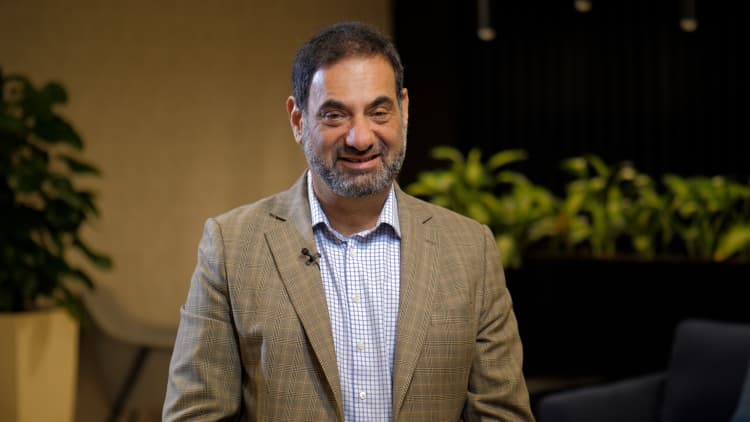If you still say "fully vaccinated" for Covid, it's time to stop.
With new boosters on the market and an ever-evolving virus, experts say the term no longer means being the most protected you can be. They point to two, far more appropriate alternatives to use in this current phase of the pandemic: "up-to-date" with Covid vaccines or simply indicating whether you've gotten your latest booster shot.
"I certainly would say that we need to stop using it, set that aside altogether. 'Fully vaccinated' is not the term that we want to use," Cindy Prins, an epidemiologist at the University of Florida, tells CNBC Make It.
The definition of fully vaccinated hasn't changed since the first Covid vaccines were rolled out almost two years ago. It means two initial doses of a vaccine from Pfizer, Moderna or Novavax, or one dose from Johnson & Johnson. It's synonymous with completing your primary series of Covid vaccines.
Here's why experts say you shouldn't use the term anymore, and what you should do instead:
What's wrong with saying 'fully vaccinated?'
"Fully vaccinated" was originally a simple way to remind most people — anyone who didn't get J&J's vaccine — that they needed two shots instead of one to get full protection against Covid during late 2020 and early 2021, Prins says.
But Covid has changed a lot since then, and so has the meaning of being fully protected.
Last year, the emergence of new variants like delta and omicron fueled new infections and reinfections among fully vaccinated Americans. It became clear that a primary series' protection against infection started to wane after a few months, and that booster doses were required to prevent severe outcomes from Covid, says Prins.
To put it simply, being fully vaccinated doesn't give you full protection against Covid anymore. Even if you recently finished your primary series, omicron's BA.5 subvariant and a flurry of other sublineages appear increasingly adept at dodging the protection you get from the original mRNA vaccines.
What should I say instead?
Say you're "up-to-date" on your Covid vaccines, Prins recommends. It's a quick way of acknowledging that if you're eligible for a shot, you've received it — meaning you're the most protected you can be in that moment.
The shift in your vocabulary could affect how you communicate with the people around you. For example, you should make sure loved ones are "up-to-date" on their vaccines before coming to a gathering you're organizing, Prins says.
The phrase does run the risk of feeling jargony, says Susan Hassig, an associate professor of epidemiology at Tulane University. "If you ask if a person is up-to-date, there's an assumption that they have a shared understanding about what it means — and they may not," she says.
Hassig points to a more "functional question" you can ask instead: Have you gotten the new booster?
"Being far more explicit in what you're asking would be a good thing if they don't know what [up-to-date] means," she says.
You can always educate the people around you about what "up-to-date" means, Prins notes. That may also involve knowing the eligibility guidelines for different Covid shots, and finding "respectful" ways to ask friends or family members whether they meet a dose's requirements.
Sign up now: Get smarter about your money and career with our weekly newsletter
Don't miss:
- Dr. Fauci: These 2 new fast-spreading omicron Covid subvariants are 'pretty troublesome'
- Omicron-specific Covid boosters appear to work well, new data says—regardless of the side effects you experience
- Get your omicron-specific Covid booster by Halloween, says Dr. Jha: 'You don't want to be that person who gives it to your grandma'



